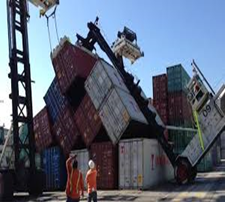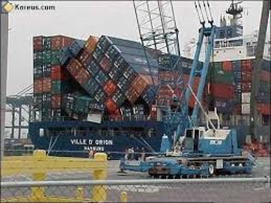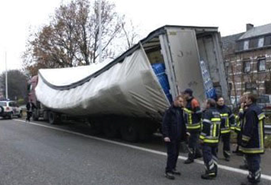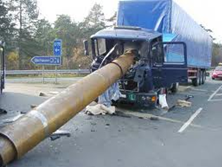Procurement of Transport and freight is a profession!
I recently selected new carriers and negotiated deals for a global manufacturer. The package roughly contained 10.000 loads to 15 countries in Europe. Although transport is my specialism and I have done these jigsaws many times before, I was again impressed by the non-competence in this market.
Maintaining the status quo with current carriers is something different than selecting new ones, also known as tendering. You have to be keen, to have in-depth knowledge of the transport market, otherwise it will almost be impossible to tell the difference between competitors and quotations.
Insufficient knowledge of transport
The last few months I have had discussions with sales managers, tender managers, trade directors from logistic companies all over Europe. I learned that a large part of their counterparts, the logistic buyers, often had insufficient knowledge of the transport business they were tendering. Even in some cases companies left their Procurement of Transport unattended or even to a bright fresh graduate from school.
For these companies obviously transport still plays a minor role in the total cost and supply chain. Other companies recognise the importance of transport and hire professionals for this job. Which raises the question: what qualifies a transport buyer?
Know your carriers
First of all you need to know the carriers you are inviting to tender. Ask yourself the question, what important role could this carrier play and how could it contribute to the big picture? What is the size of this company and are they able and willing to work with our logistic department? How will they deal with our complaints? Do they have own equipment?
Specify your requirements
Secondly specify your requirements into detail. Be very precise in terms of equipment, lead-times for each lane/country. Mistakes will be used against you after you closed the deal. Just remember it’s a sport to offer the lowest price and charge you extra once you signed the contract. Even if your specification took 6 months, new important requirements will show up once you work with the new carrier. Think about every possible scenario before you move along.
Specify the general conditions
Thirdly specify the general conditions as strict as you can. By doing this you might avoid a war afterwards. Think about payment terms, conditions like CMR, Fuel surcharges etc. Is it your first time you are tendering transport? Get external assistance in building your RFQ’s otherwise lawsuits might follow. Organising and buying transport requires a big portion of legal documents and procedures. What happens if your load gets stolen or lost? What about Insurance?
Winning bid starting point negotiations
Fourthly, no matter how you described your tender conditions, reject prices that have been quoted so far. The winning bid is just a starting point for further negotiations. How to cut costs further? First of all, try to make the best combination Carrier<>Country. A carrier that gains loads to its home country is always prepared to give a few percent extra discount. What other things can you use to get a better price?
A logistics buyer will be confronted during the tender process with a lot of different people, companies, prices, lanes, equipment types etc. The end of the day all these quotes form pieces of the jigsaw that needs to be fixed. For large tenders this is months of hard work and there’s no way of completing this puzzle if your knowledge of the markets fails.
Think multidimensional
A good logistic buyer must think multidimensional, know the players by heart, their specialisations, equipment types and preferred countries. Besides that he(/she) must be able to think up en down, meaning he recognises top quality but also has a gut feeling for poor service. Last but not least, he can move from left to right, which means for each category he knows the major players who compete each other.
Maybe the most importing knowledge a buyer should gave is understanding how cost prices are made up and used in the market. Knowledge of local costs are also inevitable, like customs.
Proof of delivery
I know a lot of buyers and managers disagree with me. Procurement and writing the specifications are two separate things. Most of the procurement managers expect their business/stakeholders to specify the requirements that need to be met/bought. Usually these managers think they have done a good job saving 1 or 2 percent annually.
Unfortunately interim professionals like myself always proof otherwise when called in for consultancy or help. We typically save 10 to 15% each time when asked to redo the jigsaw called transport.
|



























